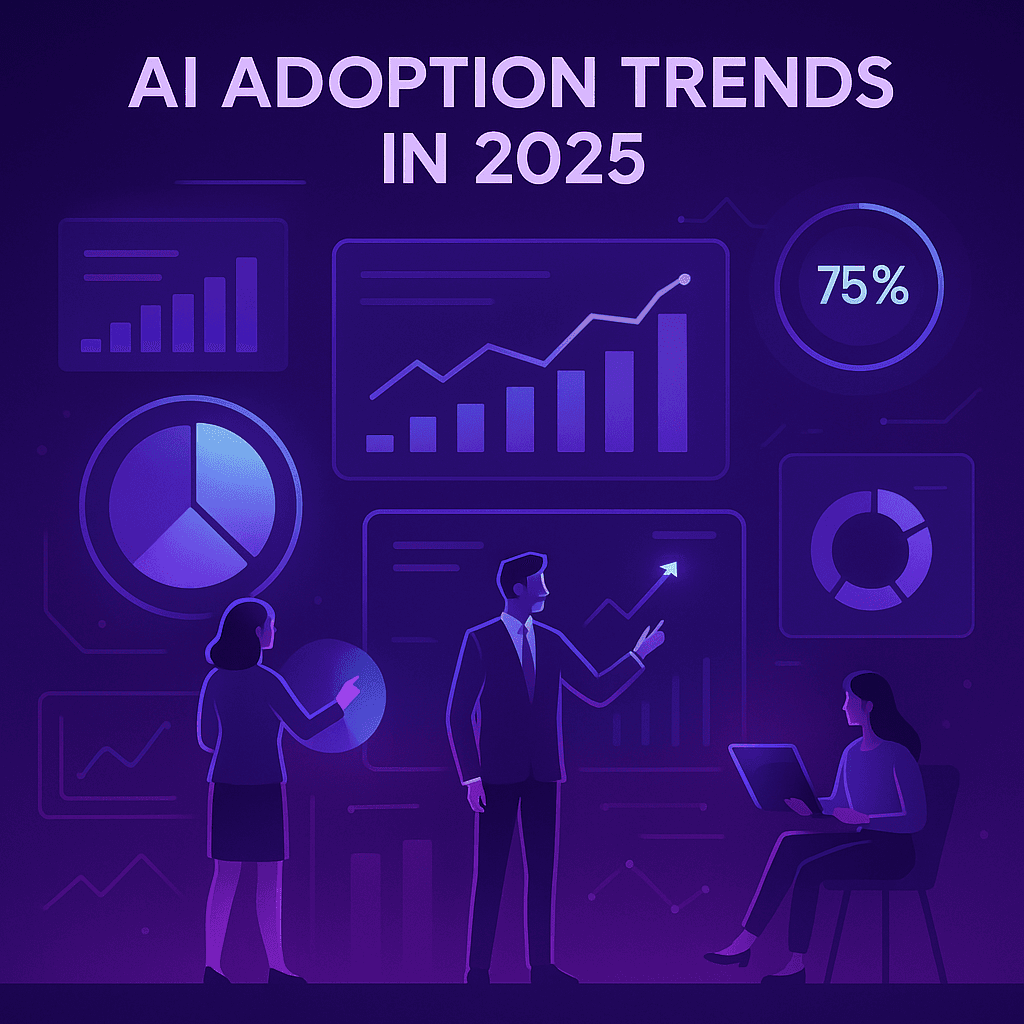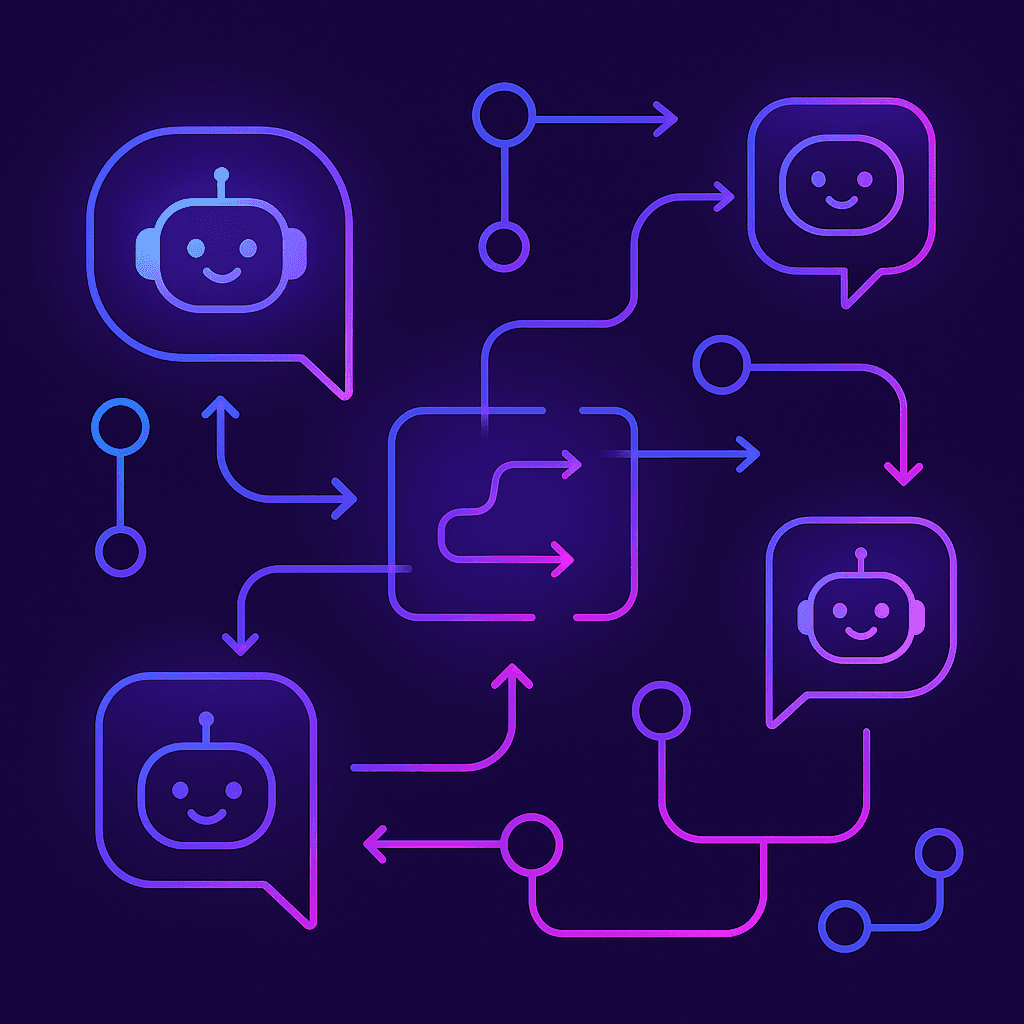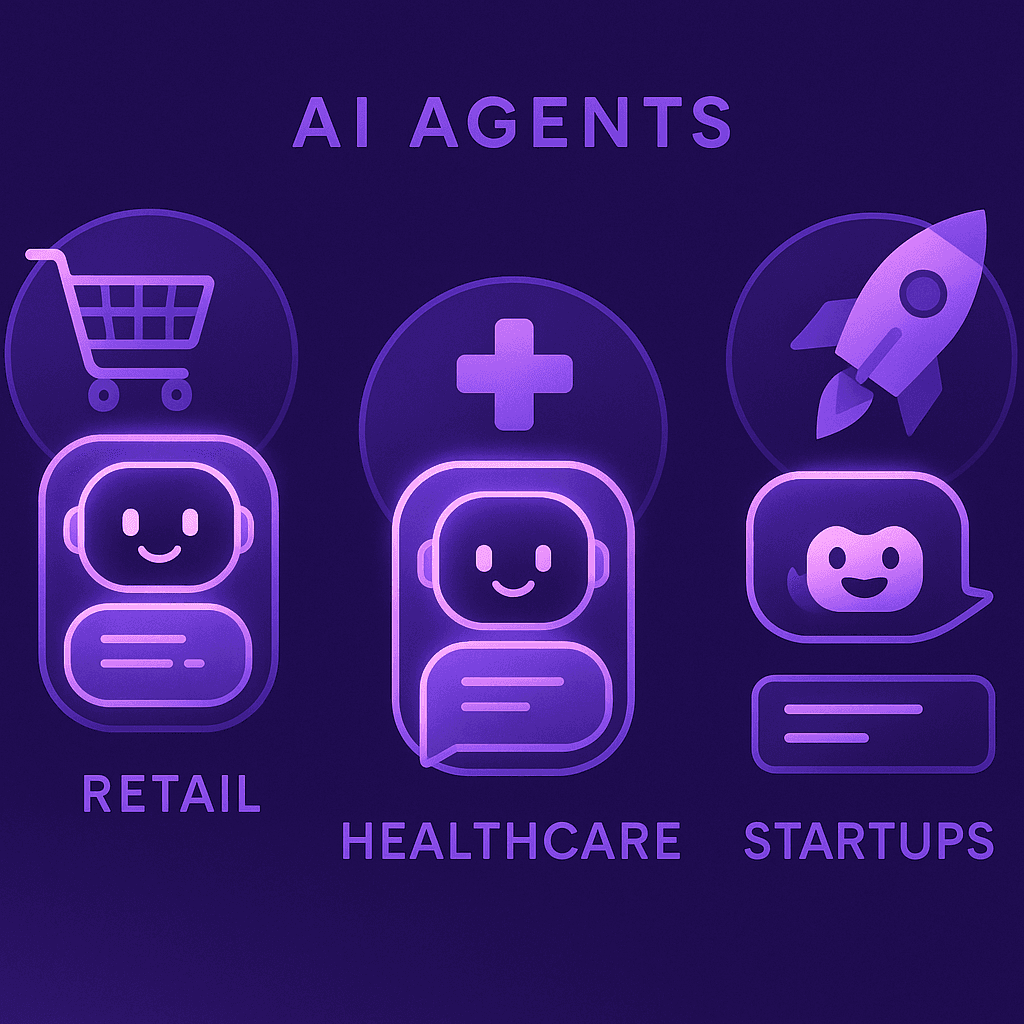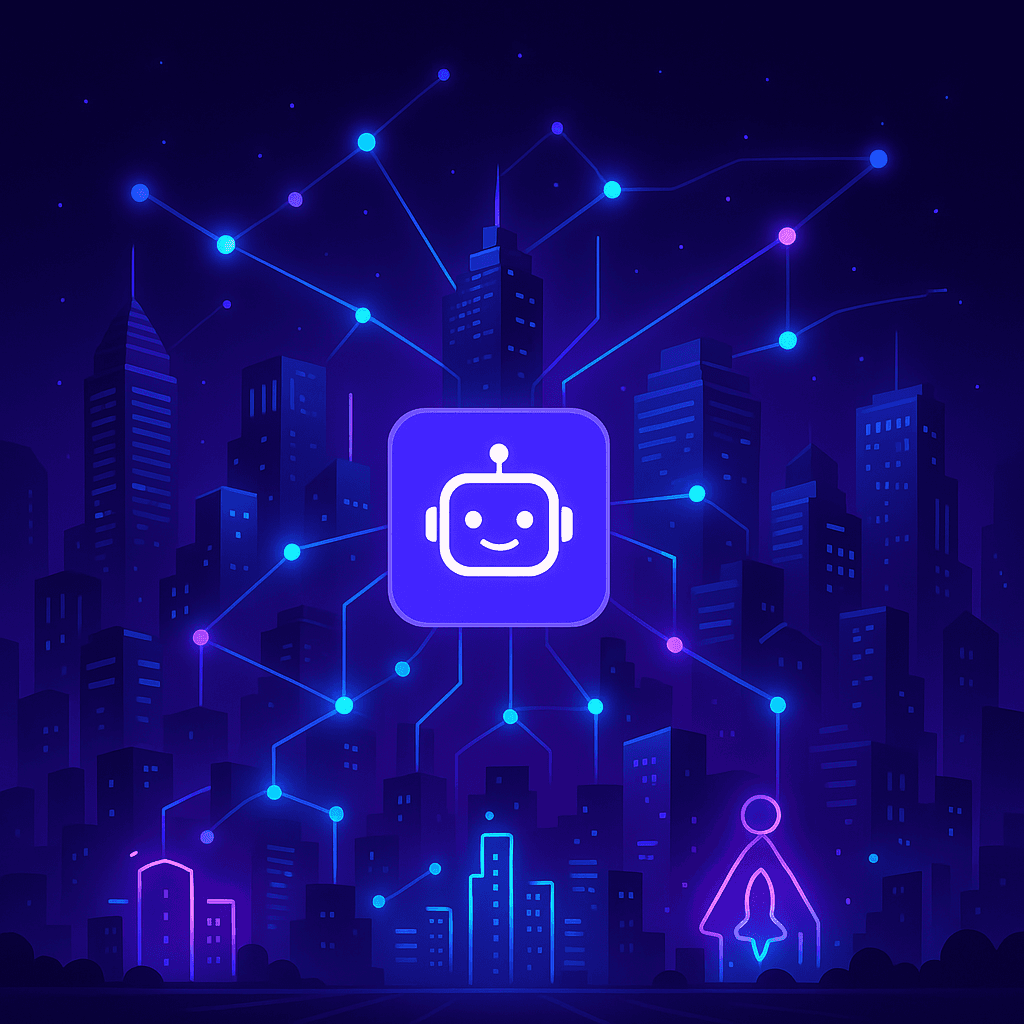AI Agents in 2025: Trends, Stats, and Real-World Impact
Aug 22, 2025
ai trends and research

Artificial intelligence is not just automating tasks. It’s transforming how organizations operate from the inside out. As we move into 2025, agentic workflows have emerged as the next frontier, empowering businesses to design, deploy, and manage networks of intelligent agents that collaborate, adapt, and deliver outcomes far beyond traditional automation. This blog explores the latest trends, essential statistics, and the profound real-world impact of AI agents across industries, showing how intelligent agents are redefining what’s possible in sales, travel, healthcare, and more.
Key Trends in AI Agents

AI agents are now integral to modern business operations, but 2025 marks a leap in both scale and sophistication. According to a Cost Analysis of AI Agents in Enterprise, organizations deploying agentic workflows have reported a 20-30% reduction in operational costs, thanks to streamlined processes and optimized resource allocation.
An “AI agent builder” is no longer a niche tool. Platforms have democratized the design and deployment of intelligent agents, allowing teams to experiment with specialized AI sales agents, AI travel agents, and more. The industry’s rapid growth is underscored by these trends:
- Enterprise adoption: More than 60% of Fortune 500 companies have initiated or scaled AI agent deployments in sales, customer service, and supply chain automation.
- ROI focus: Businesses report a typical 3x return on investment within the first 12 months of implementing automated workflow solutions.
- Sector diversity: From SaaS and e-commerce to healthcare and logistics, agentic automation tools are being tailored for every vertical.
The adoption of workflow app solutions, combined with automation services, has allowed organizations to orchestrate end-to-end processes with unprecedented agility. IBM notes that AI Workflow systems are becoming the backbone of modern automation, enabling not just isolated task automation but holistic, adaptive workflows that span departments and even external partners.
Agentic Workflows: From Concept to Execution

Traditional automation tools often operate in silos, think of a bot that processes invoices or a script that sends emails. Agentic workflows, by contrast, enable a network of intelligent agents to work together, dynamically responding to both structured and unstructured data.
For example, an AI sales agent can seamlessly collaborate with a data enrichment agent and a customer support agent, all within a unified automated workflow. This level of multi-agent collaboration unlocks several advantages:
- Cross-functional automation: Tasks no longer stop at departmental boundaries. Intelligent agents pass data, trigger actions, and make contextual decisions together.
- Adaptability: Agentic workflows can self-optimize. If an AI travel agent detects a flight cancellation, it can immediately trigger compensation, rebooking, or customer notification routines.
- Scalability: As business needs evolve, new agents can be added or existing ones reconfigured without a complete overhaul.
No-code platforms such as SketricGen have made it possible for teams to build, test, and deploy these advanced workflows without requiring deep technical expertise. Using an intuitive AI agent builder, product managers and business leaders can orchestrate sophisticated intelligent agents in minutes rather than months.
Real-World Impact Across Industries

The versatility of agentic workflows has catalyzed tangible results across multiple sectors. Let’s look at how these innovations are driving measurable value in real business contexts.
Startups & MVPs: Accelerated Go-to-Market
Startups are leveraging agentic workflows to build MVPs with fewer resources and greater speed. By deploying AI automation tools, early-stage teams can automate customer onboarding, lead qualification, and support—freeing up human capital for strategy and innovation. For a deeper dive, see our feature on Agentic AI & AI Driven MVP. In several case studies, startups reported:
- 50% faster MVP launch cycles enabled by automated workflow orchestration.
- Significant cost savings as intelligent agents handle repetitive tasks.
Retail & E-commerce: Personalized Customer Experience
Retailers are using AI agents to provide hyper-personalized shopping experiences. For example, one major e-commerce brand implemented an AI sales agent that interacts with customers, recommends products, and manages post-sale support—all within a single workflow app. The result was a 15% increase in conversion rates and a measurable boost in customer satisfaction. Discover more in How Agentic AI is Transforming Consumer Interaction.
Healthcare: Efficiency and Compliance
Healthcare organizations face unique challenges: complex regulations, sensitive data, and resource constraints. Intelligent agents can automate scheduling, patient intake, and compliance checks. In a recent project, an automated workflow reduced manual admin time by 40% while ensuring HIPAA compliance at every step. Explore the full story at Agentic AI in Healthcare.
Travel: Always-On, Responsive Service
AI travel agents are now a staple in the industry. They monitor itineraries, manage bookings, and resolve issues in real time. Travel companies utilizing these solutions have seen customer response times drop by 70% and operational costs decrease significantly.
SaaS & Enterprise: Integrated, Scalable Automation Services
Enterprises are using agentic workflows to connect disparate systems, automate onboarding, and manage data compliance. The flexibility and scalability of these workflows ensure that businesses can adapt as their needs evolve without costly reengineering.
Teams ready to experience these benefits can start building their own AI agents today using the SketricGen Dashboard. The platform’s no-code approach empowers any business unit to launch intelligent, scalable automation services in record time.
The Future of Intelligent Agents

Looking ahead to 2026 and beyond, several trends are set to shape the evolution of agentic workflows and intelligent agents:
Hyper-Specialization
As industries mature, AI agents will become even more specialized. Expect to see highly targeted solutions—such as compliance-specific agents for finance, or AI travel agents with deep integrations into global distribution systems.
Compliance-Ready, Explainable Workflows
Regulatory scrutiny is increasing. Enterprises will demand agentic automation tools that offer audit trails, transparency, and explainability. According to McKinsey’s insights on Building AI Trust, explainability is now a key factor in enterprise adoption. Intelligent agents must not only act autonomously but also provide clear reasoning for their decisions.
Human-AI Collaboration
The future is not just about automation, but about augmenting human expertise. AI agent builders will empower teams to configure workflows where agents handle routine tasks, while humans focus on strategic, creative, and high-empathy work.
Unified Automation Ecosystems
Agentic workflows will move from isolated solutions to integrated ecosystems, connecting CRM, ERP, HR, and more. Workflow apps will serve as the control centers, giving businesses a holistic view of all automated and human-driven processes.
Continuous Learning and Adaptation
Tomorrow’s intelligent agents will not be static. With advances in AI, they will continuously learn from data, adapt to new challenges, and recommend optimizations pushing the boundaries of what automation services can achieve.
FAQs About AI Agents and Agentic Workflows
What is an agentic workflow, and how does it differ from traditional automation?
An agentic workflow uses intelligent agents that collaborate and dynamically adapt to changing scenarios. Unlike traditional automation, which follows fixed scripts, agentic workflows can make contextual decisions, pass data between agents, and optimize processes on the fly.
How can businesses get started with AI agent builders?
Most modern platforms, like SketricGen, offer no-code AI agent builders. These tools enable teams to design, test, and deploy intelligent agents without writing code. Using drag-and-drop interfaces, businesses can create automated workflows tailored to their specific needs.
What are the most common use cases for AI agents in 2025?
AI agents are widely used in sales (AI sales agent), customer service, travel (AI travel agent), healthcare, and internal operations. They handle lead qualification, customer support, bookings, compliance, and more, delivering measurable time and cost savings.
How do agentic workflows improve ROI and reduce costs?
By orchestrating multiple intelligent agents across departments, agentic workflows eliminate redundant manual tasks, speed up response times, and reduce errors. This leads to faster operation cycles, fewer resources required, and a clear boost to ROI, as detailed in the Cost Analysis of AI Agents in Enterprise.
What role does explainability play in enterprise AI agent adoption?
Explainability is crucial for building trust and ensuring compliance in enterprise settings. As highlighted in Building AI Trust, businesses must be able to audit and understand the decisions made by intelligent agents, especially in regulated industries.
Conclusion
Agentic workflows and intelligent agents are not just buzzwords—they are reshaping how businesses operate, compete, and create value in 2025 and beyond. From startups building their first MVPs to enterprises automating at scale, the shift to agentic automation services is unlocking unprecedented efficiency and innovation. SketricGen stands at the forefront of this transformation, making it simple for any team to design, deploy, and scale AI-powered workflows.
The future of work is agentic. With SketricGen’s no-code AI agent builder, any team can design, deploy, and scale intelligent workflows in minutes. Start building your first AI Agent today in the SketricGen Dashboard.